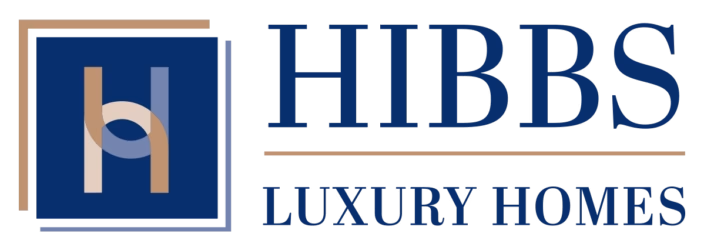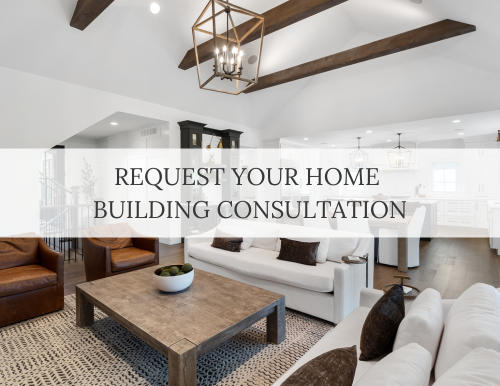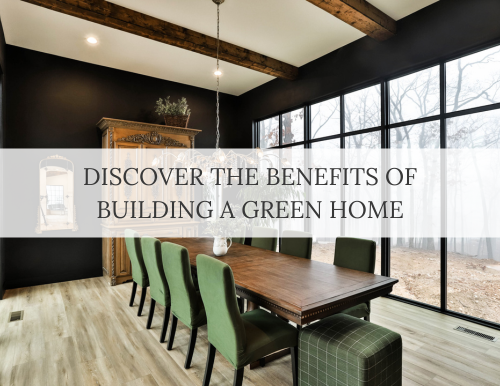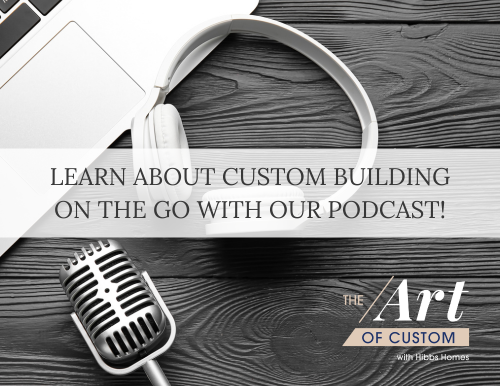S7, E10: The Homes that Built Hibbs Homes
In this episode of "The Art of Custom," we close out our journey of 20 homes for 20 years by exploring the homes that built the builder and the legacy they launched. Join us as we delve into the stories behind the Hibbs Family Home and the first Hibbs custom home. Hear from Kim and Jan Hibbs about the challenges, inspiration, and values that have shaped the company over the last two decades.
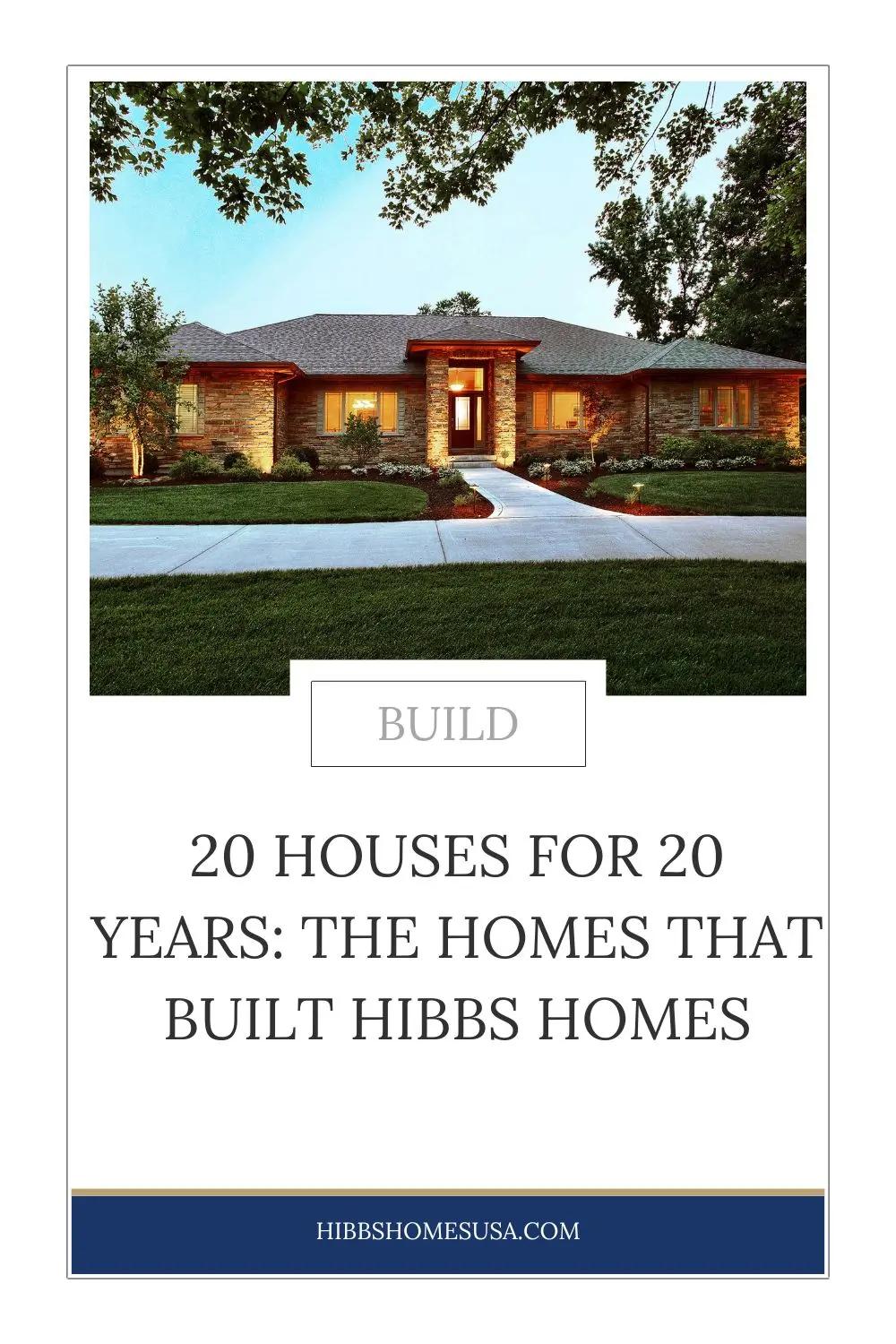
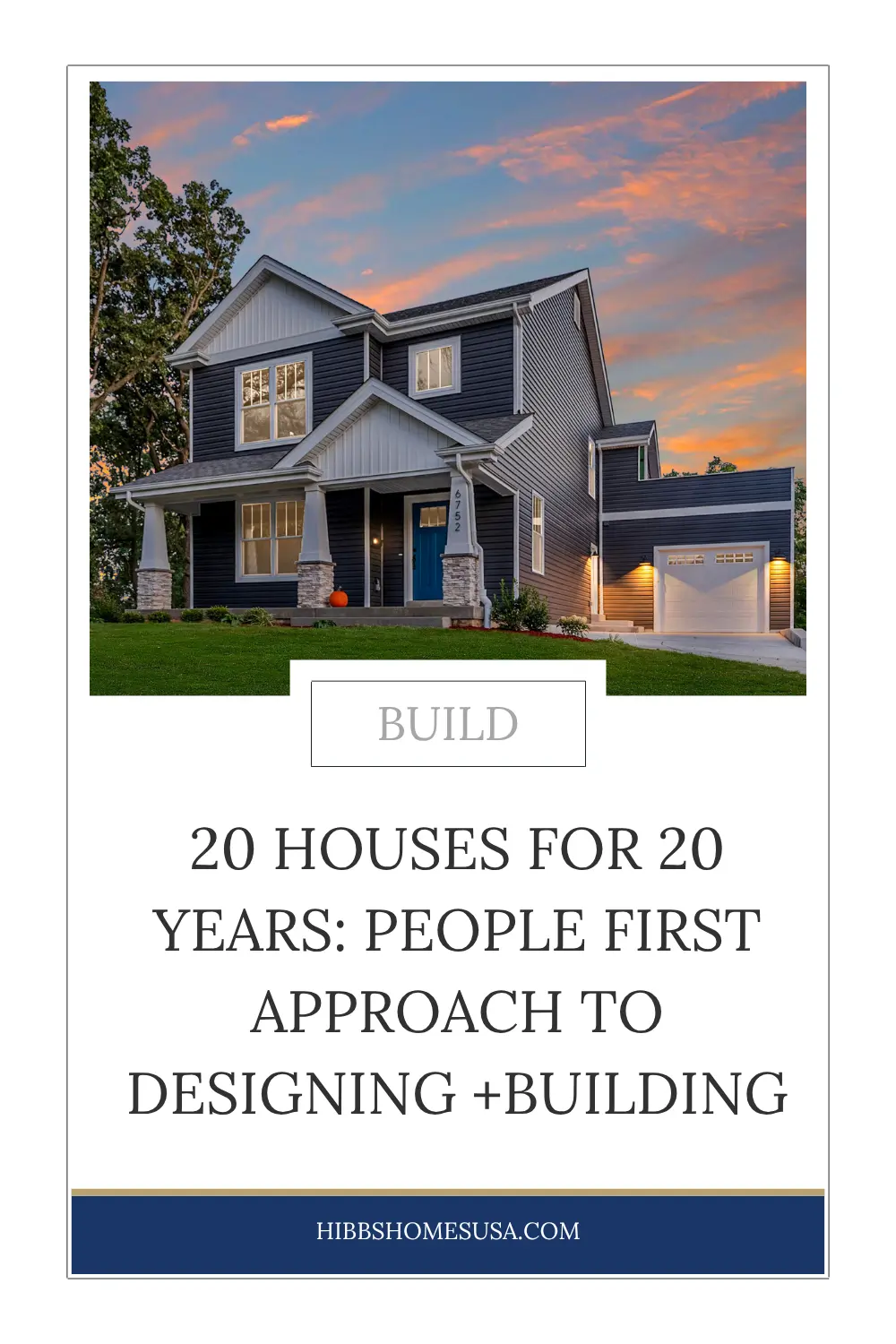
SEASON SEVEN, EPISODE TEN | TRANSCRIPT
Speaker 2 (00:07.914)
Every company has a beginning. For us, it wasn't an office, and it wasn't a job site. It started with a home. While it wasn't the first home we built, we'll get to that a little bit later on, this home is the heart of the company. Today's episode of the Art of Custom closes out our journey of 20 homes for 20 years with a look at the homes that built the builder and the legacy it helped launch.
Welcome to the Art of Custody. Today's episode, we take a look back on two homes, first home built by the Custody.
company and the Hibbs family home. You'll get a peek behind the curtain of what we've learned today.
shaped the company and hear about it along the way. Enjoy!
Speaker 2 (01:08.654)
In 2007, my wife Jan and I built what would become our family's home, a ranch style home inspired by the beautiful homes we loved in Park City, Utah. As this home took shape, it became more personal, more purposeful, and it quietly became the foundation for something much bigger. It's where a vision took shape and one that would guide more than 20 years of custom home building, hundreds of one of a kind homes,
and two expanding markets. Melody, today we're going to talk about two homes that are very special to our company, the Hibbs Family Home and the first home we built from the ground up.
Well, I am excited to talk to you guys both about these homes because they're really emblematic of the journey, if you will.
I'll agree with that and first of all you're probably excited because you got the two of us in the same room for once. I know. Because you were usually going in different directions.
Not only that, but you know, took some coaxing to get Jan to agree to the podcast and some schedule.
Speaker 2 (02:13.272)
Yes it did. You originally scheduled for the other day and she thought she got out of it but then you rescheduled it and here she is.
Hi, Jan. I'm fantastic. I'm glad to have you on the podcast. Thank you.
Hey, how are you?
Speaker 2 (02:26.03)
This will be
Be here.
Well, so you guys do have a unique journey and we're wrapping up 20 homes for 20 years talking about this entire process. So Kim, you actually started off with a really successful career in broadcasting. What made you start thinking about a pivot to construction?
We didn't plan it that way. It just happened, one of those things. When Jen and I had our first couple of kids, we wanted some flexibility with her career. And so she chose to get her real estate license, and we started fixing and flipping homes. I noticed that you titled story one, From Flips to SIPs. That was pretty clever, something I don't know that our listening audience probably would get to see. But SIPs stands for Structural Insulated Panels, right? Right.
Anyway, so the story from flips to sips is we started flipping homes. We enjoyed it somewhat. The problem we had with it was we always wanted to do too much. We thought, didn't we Jan, we thought that, we can spend a little bit more on those appliances or we can spend a little bit more on the flooring because people are gonna love it. Well, what it came down to is people, real estate agents, really did stick to cost per square foot, comps from the neighborhood.
Speaker 2 (03:42.886)
And so while it was successful, the flips that we did, it wasn't as fulfilling, quite frankly. So all this was happening while I was still a broadcaster for the NBC affiliate, television affiliate in St. Louis. And we decided we wanted to get into new construction. So we joined the Home Builders Association here in St. Louis, great organization. And we kind of immersed ourselves in the HBA and started learning more about new home construction. We just.
took a chance and so really what happened is my contract had come up at the NBC affiliate and the business had just started to really take off and so I kind of had a choice. Really could see the broadcasting industry was going in a direction that I was really not comfortable with and so when we had the opportunity to take Hibbs Homes full-time we made the decision.
So Jan, you started off actually as a bookkeeper for some professional athletes, which I think sounds like such a cool job. So what made you decide really to make the change?
Prior to children, I was a bookkeeper for a sports agent and did a lot of bookkeeping for lot of well-known athletes. And then when we had their children, we wanted me to be able to stay home with them. And then when they got to kindergarten, we decided we've always been entrepreneurial. We had tried several different businesses over our marriage.
Once again, we were sitting out in Park City, Utah, having a beer at the base of a mountain and trying to decide what we're going to do that I could go into work part time, take care of the kids and have some flexibility. We unknowingly knew it wasn't quite as flexible as you would normally think because there's a lot that goes into it. So that's kind of how we started with Hibbs Homes, just brainstorming what business to go into. And we decided to start off small.
Speaker 1 (05:31.694)
flipping houses. Kim would help me as soon as he got off work. A lot of times there were kids with us. We were in neighborhoods that aren't always the easiest to drag children to in houses that we are gutting and redoing. So it's always been a family relationship in the building.
They're talking about Alexis and Brandon Hibbs who kind of grew up with the business. So Alexis is now part of the business as well. It is truly a family business and even our Park City branch has operated as a family business as well.
Well, and that's really part of our culture. It's who we are. We stress that a lot how the family relationships and the family dynamics, they do come into play when you own a small business. But we consider everybody that works for us part of our family. It's what we like about what we do.
So a lot of people dream about making a career change, and very few actually do it. And even fewer with as much success as clearly you guys have had. mean, 20 years for a builder, number one, for a small business, number two, I mean, and for a second career, number three. Pretty awesome. So if somebody else were looking to do something like what you guys did make that big leap, what gave you the confidence?
I don't know that it's confidence. think you, you know, you get into the middle of it and you just have to make a hard decision. I don't know that we necessarily had confidence. Maybe what gave us the confidence is after we had done a few spec homes that had gone fairly well for us, we were approached by the friend of a friend who needed a home built somewhere near where we were living. And it was a large home. It was a pretty expensive home for the time.
Speaker 2 (07:18.566)
and they trusted us to do the project. We did the project, it went exceptionally well. Then all of sudden they had a friend who approached us and it kind of snowballed from there. really I don't know that, I think if we were looking for maybe a trigger that would have been it. But all that was happening at the same time my contract came up, so we had to make a decision to do this full time even before that. So I think it was just, you kind of follow your gut if you will. But you bring up those statistics about businesses that fail and.
and businesses that have been around for 20 years. It's a very low percentage. And if you brought those up right now, back when Jan and I started the business, we might have second thought it to be honest with you because it's a daunting task to do what we did and then opening up in a second market. We did have a leap of faith a number of times and we just had to have faith that it would work out.
Through this evolution, were there any moments that are projects that really stood out as learning experiences, either gave you the, you know, this is the direction you mentioned the first home, somebody approached you about it. What were those big learning experiences in those first home?
In every home we've ever built there's been learning experiences and that's why we enjoy what we're doing is every home is different. The first home we built was very different. We went in an area in Kirkwood and it was a spec home and what was the first learning experience is there's a whole foundation in the basement where we were getting and house where we were getting ready to build. So we had to learn to deal with whatever's below ground and we've had some very
interesting things below the ground when we go to dig foundations throughout the 20 years. Cisterns, actual full foundations, all sorts of different things. I think every home we've done has given us good challenges and tough challenges, but that's what we like about our business is helping our clients overcome these challenges because it's their home and we're building their dream and whatever we can do to.
Speaker 1 (09:24.408)
facilitate that in as easy of a manner as we can is what we would like to do.
I think we learned early on that we were good working with clients and helping them build their dream home. Now I want to be clear that doesn't mean that every single project has gone perfectly because in the construction industry it can't and you don't you don't always have the perfect client. You don't always have the perfect builder. But when you have a 90 or 95 percent track record in this industry I think that's pretty good. And I think we realized how to deal with the clients and then as we started growing our business and assembling the team.
We always kept that in the forefront of everything we were doing, taking care of clients. A lot of builders will not build custom homes. A lot of builders focus on spec homes because they do not want to deal with clients. We've always tried to put our team together so we can take care of the clients. And I think that's something that we learned early on that we're pretty good at it.
So was there a moment that just was, you know, this is a sign that we are doing the right thing. It sounds like when you guys were asked to build that custom home and it went well and it started to snowball, that was maybe a moment. But what was that first project that you're just like, you know what, this is we made the right choice.
I know. mean, looking back, I don't know that there was that one aha moment. We just really kind of put our head down and kept moving forward project after project. One of the things too that I think timing really worked out for us as well, we started our business during that huge economic downturn. Remember when there was that the housing market basically crashed back in 2007, 2008, 2009, didn't fully recover until 2012. Fortunately, we're kind of conservative by nature. So we really never
Speaker 2 (11:05.792)
hold a lot of land or possess land. That's never been in our portfolio or quite frankly, business model. And I think the timing worked in our favor because had we gotten wrapped up like everybody else, that big boom that was going on from the early 2000s up until the crash, I mean, people were doing some, pardon the language here, but pretty stupid stuff when it came to construction and building and buying. I don't think we would have gotten caught up in that. You never know.
But I think that the timing worked out well too, because even though there was that downturn for those three years, we still grew at a very small rate, still took on projects and were able to kind of keep the doors open for sure. And as a matter of fact, we actually hired our first superintendent. During that downturn, he had gotten let go by another builder. We were able to bring him on board and that kind of launched us to the next level, which allowed us to take on even more projects.
So I think that the lesson learned was timing is everything too. You just kind of have to trust your gut, number one. We're firm believers that things happen the way they're supposed to and the way they're supposed to work out. And so I think those are the two things that just kind of we followed and we trusted.
So are there any values that you guys kind of amassed in those early days that are really at the DNA? I mean, I know that not holding land is very unique actually for builders. What are those other lessons that kind of shape the company?
I would say do the right thing. If not our core, it's our core value is do the right thing. That's part of the reason why we didn't stay in spec building and flips because we wanted to do the right thing and that didn't always equate to the best profit. Putting a dishwasher that's maybe $100 more than the cheap one in the house, but as it added up, it made the house the right type of house, but it wasn't necessarily the best thing to sell.
Speaker 2 (12:33.358)
I was thinking the same thing.
Speaker 1 (13:01.61)
So that's part of the reason we got into custom so quickly, luck, and just doing the right thing. And we try to uphold that. All of the people that work for us have the same feeling, same beliefs and values.
Yeah, I was thinking the same thing. really drives who we are. Whenever a tough decision has to be made, and a lot of times, you know, I'll be communicating these decisions in emails and all, and it's very simple. We'll make that decision and we'll follow it up with because it's doing the right thing.
Whenever I first joined you guys, this was 2009 shortly after you guys had started the company. And one of the things that you told me when I first joined is that your goal wasn't to be the biggest builder. It was to be the best builder in St. Louis. And I think that that is a very different approach to growing a business than, say, another builder, I mean, or even any other company. So at what point did you decide to take on your first ground up?
home belt.
I think after we finished a project in the greater St. Louis area, a municipality called St. Anne, good project. We did well with it financially, but I think I mentioned earlier, it wasn't satisfying to us because we were not able to finish it the way we wanted to. And we were not able to kind of put our stamp of approval on the overall design of the house and the finishes of the house. So we actually had a friend who worked for an architectural firm and we went and talked with her and
Speaker 2 (14:30.984)
And we just decided we wanted to wade into, you will, slowly the spec home, ground up new construction, which we did. And she was very easy to work with. We designed a simple story and a half home, three bedroom, two bath, obviously nothing too elaborate to get our feet wet. The community of Kirkwood, well known in the St. Louis area. So we felt we had an opportunity there, prime location as far as being close to all the major interstates, downtown St. Louis.
we just decided again kind of following our faith a little bit that we knew we could take on that project and complete it, which we did. And that led to another few more spec homes, two of them down in a very historic neighborhood within the city of St. Louis boundaries called the Shaw neighborhood. And we worked with the city of St. Louis actually and built the first two new homes in that community in more than 100 years.
And what we liked about that project, was ground up new construction, but we also had to pay respect to the architectural details of all the homes on the street, all the homes in the Shaw neighborhood. It was just such a fun project, the groundbreaking. had the mayor there, we had city officials there, the alderman there. We built two beautiful homes along Russell and found wonderful buyers for those homes. And that kind of, know, between the Kirkwood project followed by that project, we started to really get our feet wet.
when it came to ground up new construction, it just seemed like a better fit for us personally.
So when you started on that path, what did you decide that you wanted to be known for?
Speaker 2 (16:07.074)
good quality construction, and always doing the right thing. That's been our North Star all along, is doing the right thing for everybody.
I feel like those values are just baked into the DNA of the company at this point.
Many years later, they're still here. They still guide us.
So company starts in 2004 and we're doing some ground up builds. And then in 2007, you start building what I call our kind of iconic home, right? This is the Hibbs family home. I say it's iconic because it remains a centerpiece of our marketing. So let's start with the basics of that home. What inspired you guys to design that home the way that you did?
think it was really designed after our love for Utah. Mountain construction. It was originally built as a spec home. We were going to sell it. But Kim and I in the design and everything really kind of fell in love with the house. The look, the feel, where it's located. It was in a neighborhood that we already lived in. It was just on a different side of the neighborhood. But we've always enjoyed that.
Speaker 1 (17:14.398)
I wouldn't say rustic, it's not even mountainy, it's just got a different look. If you drive by it, you don't go, that house looks like every other house in the neighborhood, or even every other custom home. And we ended up falling in love with it.
So during the construction, we decided we needed a bigger house. So we quickly kind of pivoted, sold our home and decided to finish this home with the selections that we wanted. And 15, 16 years, whatever we've been there later, it was the perfect decision for us. We absolutely love the home and you could not get either of us out of that home kicking or screaming. Not only do we not like to move, but we really love the house and the lot and the location and just everything about it.
interesting story about that is our children were probably middle schoolish and they would help us by cleaning up the lot when it was still a spec home and we hadn't told them that we had made the decision to go ahead and keep the house ourselves and then we had lunch one afternoon when we were in the painting stage on the patio and brought in some Panera and we'd already asked Alexis if she was gonna paint a room what would her paint look like
And then we ended up having that bedroom painted exactly how she wanted it. And we're just kind of like, well, let's walk through the house, see where everything is, know, in construction and stuff. And she kind of walked into the room that was going to be her room. And she's like, wow, this is exactly how I would paint it if I would paint it. And we're like, well, good, because that's now going to be your room. So it was kind of a fun story about that house and letting the kids know that it was going to be our home.
So besides the paint color in Alexis's room, what were some of the must have features that you guys want you shifted to it being your home? What were those features?
Speaker 2 (18:59.432)
It's interesting because we just love the layout and of course that's something that we focused on during the design phase but the master, the primary suite is on one side and we have three bedrooms on the other side so that's very popular today. It wasn't before but now it's very popular. Love the open great room with the vaulted ceilings because it's you know the kitchen right into the great room breakfast area it's all right there.
I really like we have a two sided fireplace that goes out to a rear covered patio and we spend a lot of time out there because we both enjoy being outdoors.
Yeah, I think when we first were designing it, it was going to have a clear story. And we took that out, which in some of it is due to the way we build. It was not probably going to be the most energy efficiency with having that upper area. It would have created a really cool look, but heating and cooling and all was not probably the most efficient thing. So that was one of those things that we chose to get rid of, but that would have been a neat feature.
What were the challenges of building it as a spec home that just really made you change your mind and say, you know what, this is our home?
no challenges. just, every time we would walk in there, one of us would make the comment, I just love this floor plan or I just love this lot or I love how this is finishing out. It simply came down to we were building our dream home all along. We just didn't know it until we really talked ourselves into listening once again to ourselves.
Speaker 3 (20:29.944)
Were there any design or construction decisions that you guys made during the construction of this house that were new or experimental or?
Nothing from a design perspective. Jan kind of touched on it a little bit, that I think the overall design, it has a Frank Lloyd Wright flair to it, but it also with the hip roofs is kind of unique for the St. Louis market. I think that the color scheme does lend itself to a little bit more rustic environment. Inside with all the finishes, it's definitely got that little bit of a mountain feel to it with the color scheme and all, but...
The main thing that from my perspective, and you know how I feel about building a good home, that's when we really started to focus on high performance homes. So the insulation package, the windows, the HVAC system, the roof sheathing, everything about that home, everything that we've talked about in our podcast melody for the past six and a half years, we were able to do that when we built our home. And we even have some solar panels on this particular house. And there's four months out of the year where we have no electric bills.
We did not put a huge array on our roof line. We just did enough that we, you know, the shoulder seasons, but then even during the rest of the calendar year, our electric bills just are not that expensive. So we were able to talk the talk and then walk the walk with this house.
Are there any features that you would approach differently?
Speaker 1 (21:57.074)
If I had something to do different, I would maybe do like a dirty kitchen. just seems like no matter where you live, you don't have enough counter space. But as far as most of the house know, and we live in an area that the house could be noisy potentially from where we live, but because of how we built, if all the windows and doors are shut, it is dead quiet in there. And it's awesome.
Yeah, I agree. It would be nice to have a dirty kitchen. Is it a deal breaker? No, but it's something I think more and more people have started to do. The other thing is, I mean, you know, we've lived in the house now 15, 16 years. Just some of the color selections. Back then, they were great, right? But now things change, trends and all. So we've been talking about at some point, we're going to redo the tile in our primary bathroom simply because those colors are not our favorites anymore.
But I think that overall, it shows that we took the time to think about the design. We took the time to think about how one would live or should live in that house. And we're having a hard time answering your questions. Would we do anything differently? So you can take that as we probably wouldn't do anything differently, Melody.
Although I don't know any of our clients that don't get to the end of the project and go if I knew what I know now I would have maybe done this but it's slight small tweaks. It's nothing major
And what way do you guys see this home as kind of a turning point for HIPPS Homes?
Speaker 2 (23:25.698)
Well, I think from the standpoint of just our high performance standard, we lived up to that. We're able to confidently talk to people about what a difference it makes. You've successfully used it in so much of our marketing too that I think it has a place in our history, right? Who we are and how we do things. It's a very comfortable home. And I like to think that the way we operate our business is very comfortable as well for those who work with us. We're our clients and all.
It just seems to be a real good fit, a real good symbol for Hibbs Homes.
So and this home has been part of the company and your family's history for 20 years. So how does it feel to look back on it now through the lens of everything you've built since then?
Proud?
Yeah, I agree.
Speaker 3 (24:10.88)
If you had the opportunity to go back and talk to yourselves while you're standing there looking at the lot, pre-construction, what advice would you give to yourselves?
That's a hard question simply because we like everything about the house. If you take a larger look at the business in general, go back to the beginning of this podcast when you were talking about the statistics that show businesses should not succeed and construction businesses should not succeed, everything else. think that if you had thrown those stats at us 20 years ago when we started this business, I might've said, know what, Jan?
I'm staying in the TV business because I know what that future looks like. But, you know, we are so far ahead of where we were back then. Absolutely love what we do. I love this industry, growing the business, learning something every day. I would not have done anything different with the house or where we've taken Hibbs home.
Yeah, I can't say that the journey has been easy, but I think you and I look at everything that even the challenges put you in the position of where you should be today. And if we didn't have all the challenges we've had throughout the years, then you don't get where you are today. Two markets we're building in, 20 some odd awesome employees, a lot that have come and gone that we've appreciated what they've given to the business.
But I mean, I think we have a really solid core of people. But again, all your experiences always mold who you are and where you are today. So we wouldn't really change much.
Speaker 2 (25:48.237)
you
Speaker 2 (25:53.538)
As we wrap up the final episode of our season of 20 Homes for 20 years, it feels only fitting that we end where we began. We hope this season you've not only discovered the stories behind these phenomenal homes, but also the heart behind each one. And maybe you've even picked up a little insight and inspiration along the way. To all of our clients, team members, partners, and listeners, thank you for being part of our journey.
Here's to the next 20 homes in the next 20 years, and we will be back very soon with the new season, so please stick around.
OUTRO: For more information visit www.artofcustompodcast.com or find us on Facebook and LinkedIn as The Art of Custom. Be sure to subscribe to get the latest episodes and please rate and review. The Art of Custom is produced by HugMonster sound with original music by Adam Frick-Verdeen. Thanks for listening.
